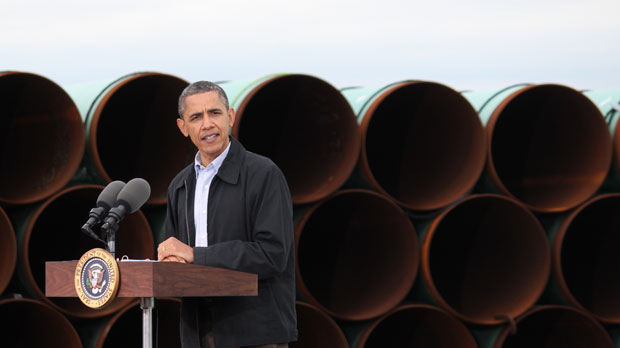Obama Dismisses Heidi Heitkamp's Call To Approve Keystone

Senator Heidi Heitkamp was part of a group of Democrat Senators who sent President Barack Obama a letter (available below) asking that he give approval to the Keystone XL pipeline by May 31st. Many of these Senators are on the ballot this year, and facing tough challenges from Republicans. The letter was no doubt a way to shore up their credibility with red or purple state voters by demonstrating a willingness to stand up to a very left-wing President.
Not surprisingly, the Obama administration was having none of it:
The White House on Thursday rejected a push by 11 Senate Democrats—including several facing tough reelection fights in November—for President Obama to make a final decision on whether to approve the the Keystone XL pipeline by May 31.
The lawmakers made their case for “definitive timeline” in a letter to Obama on Thursday, and called on Obama to use his executive authority to approve the TransCanada’s permit application for the pipeline that would deliver oil form the tar sands of northwest Canada to the Gulf Coast.
“Our position on that process hasn’t changed, which is that it needs to run its appropriate course without interference from the White House or Congress,” White House press secretary Jay Carney told reporters. “So that review continues at the State Department where it’s housed in accordance with past practice of previous administrations of both parties. And when there’s a decision to be announced, it will be announced.”
Obviously, this letter was never going to move the needle. It was more about posturing than outcome. These Democrats, much like Senator Heidi Heitkamp did here in North Dakota in 2012, need to posture themselves as more pragmatic and less left-wing than President Obama. Railing against his incessant dithering on the Keystone XL issue is one way to go about it.
But meanwhile, as Democrats play politics, needed energy infrastructure isn’t being built creating a myriad of problem from overtaxed rail infrastructure to energy shortages.




